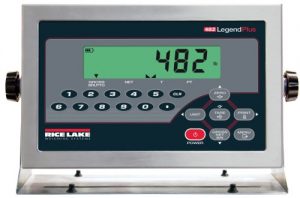The Raleigh-Durham area of North Carolina has experienced rapid population growth in recent years, with an influx of new residents seeking the region’s thriving job market, educational opportunities, and cultural attractions. To accommodate this exponential growth, a vast network of roads is being built, modified, or widened to connect communities and ensure efficient transportation.
However, this unprecedented demand for road infrastructure has put tremendous pressure on asphalt producers, who play a vital role in meeting the requirements for this expansive expansion.

The Asphalt Production Process
Asphalt, a durable and versatile material, is the backbone of modern road construction. It is made from a mixture of aggregates, binder, and filler materials. The primary aggregates used are crushed stone, gravel, and sand, while the binder is usually a petroleum-derived product. Asphalt production involves heating these ingredients to high temperatures to create a homogenous mixture, which is then laid on roads and compacted to form a smooth and sturdy surface.
The Importance of Asphalt Producers
Asphalt producers are the unsung heroes behind the seamless network of roads that underpin the Raleigh-Durham area’s growth. Their role in the development of the region cannot be overstated, as they are responsible for providing the essential building blocks for the transportation infrastructure that connects communities, facilitates commerce, and enhances overall quality of life.
Challenges Faced by Asphalt Producers
The increasing demand for new roads and road maintenance in the Raleigh-Durham area has brought both opportunities and challenges for asphalt producers. Meeting this high demand requires enhanced production capabilities, efficient logistics, and compliance with environmental regulations.
-
Enhanced Production Capabilities: Asphalt producers have had to expand their production facilities and acquire state-of-the-art equipment to cope with the rising demand. Modern asphalt plants are designed to efficiently mix, heat, and store large quantities of asphalt, ensuring a continuous supply to meet the requirements of ongoing construction projects.
-
Efficient Logistics: The supply chain management for asphalt production is crucial to ensuring a steady flow of raw materials and finished products. Producers must strategize to optimize transportation routes and minimize delays, guaranteeing that construction projects remain on schedule.
-
Environmental Compliance: As the demand for asphalt rises, so does the need to address environmental concerns related to its production. Asphalt plants are subject to environmental regulations that govern emissions and the responsible use of natural resources. Producers are embracing eco-friendly practices, such as using reclaimed asphalt pavement (RAP) and warm-mix asphalt technologies to reduce energy consumption and greenhouse gas emissions.

The Role of Scales in Asphalt Production
Scales play a vital role in the overall asphalt production process, ensuring accuracy and precision in the mixing of raw materials. Asphalt producers use scales at various stages of production:
-
Aggregate Measurement: The precise measurement of aggregates is critical, as the right proportions directly influence the quality and durability of the final asphalt mix. Advanced weighing systems and load cells help ensure that the correct amount of aggregates is used for each batch, resulting in consistent and reliable asphalt.
-
Binder and Filler Measurement: Similarly, the accurate measurement of binders and fillers is crucial to achieving the desired asphalt properties. Scales equipped with modern technology facilitate the controlled addition of these components, ensuring uniformity and adherence to specified standards.
-
Quality Control: Scales also play a pivotal role in quality control during the production process. Producers regularly sample asphalt mixes and use scales to verify whether the mixture adheres to predetermined specifications. This meticulous quality control ensures that the final product meets the required standards for safety and performance.
The Raleigh-Durham area of North Carolina is experiencing a remarkable period of growth and development, necessitating an extensive network of roads to accommodate the rising population. Asphalt producers are at the heart of this endeavor, working tirelessly to meet the demands of road construction.
As the roadways continue to expand, the importance of scales in the asphalt production process becomes increasingly evident. These precision instruments play a crucial role in ensuring the consistency, quality, and safety of the asphalt mix used to pave the path of progress in the Raleigh-Durham area. With continued innovation and dedication from asphalt producers, the region’s transportation infrastructure will remain robust and responsive to the needs of its ever-growing population.